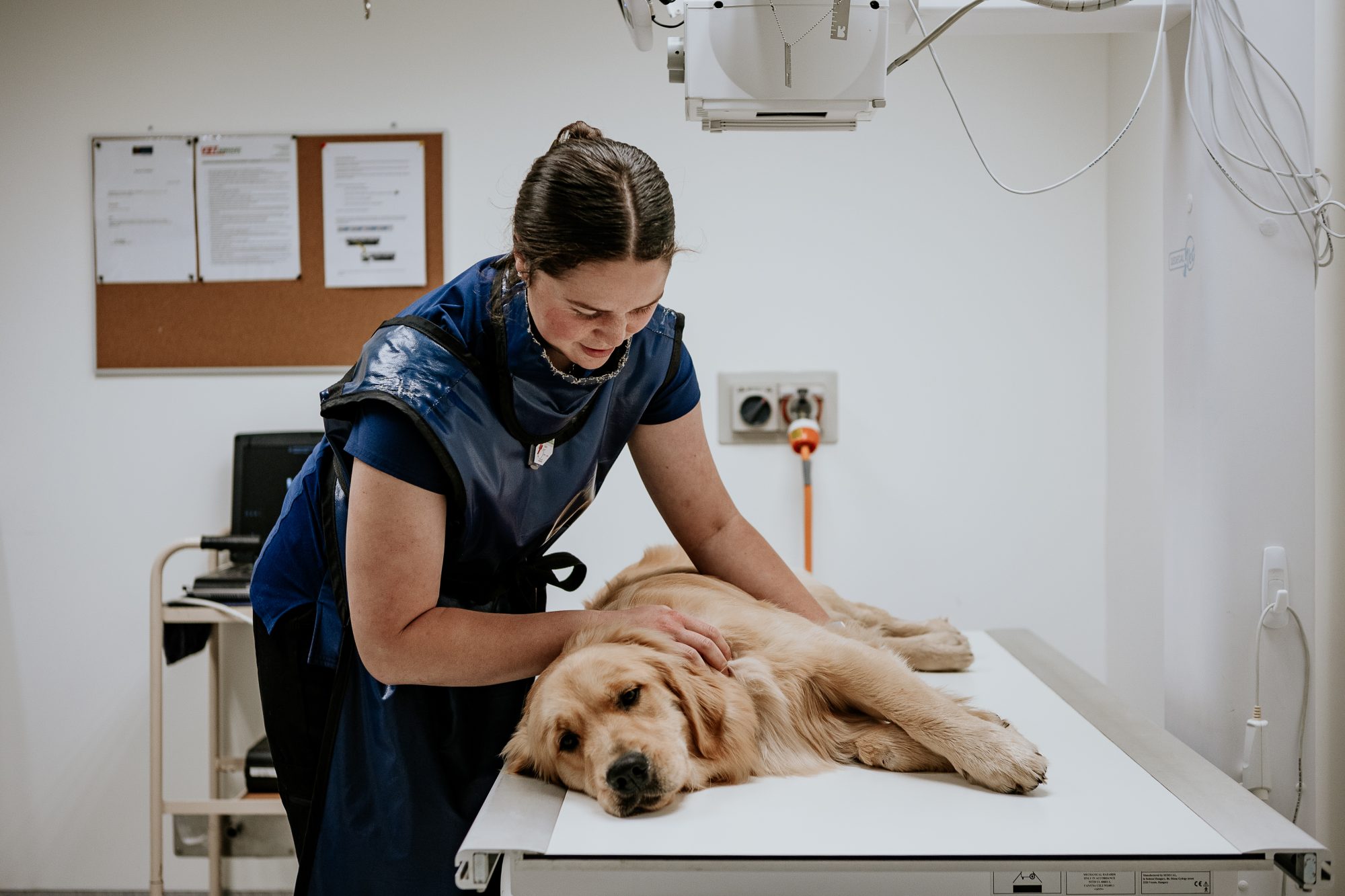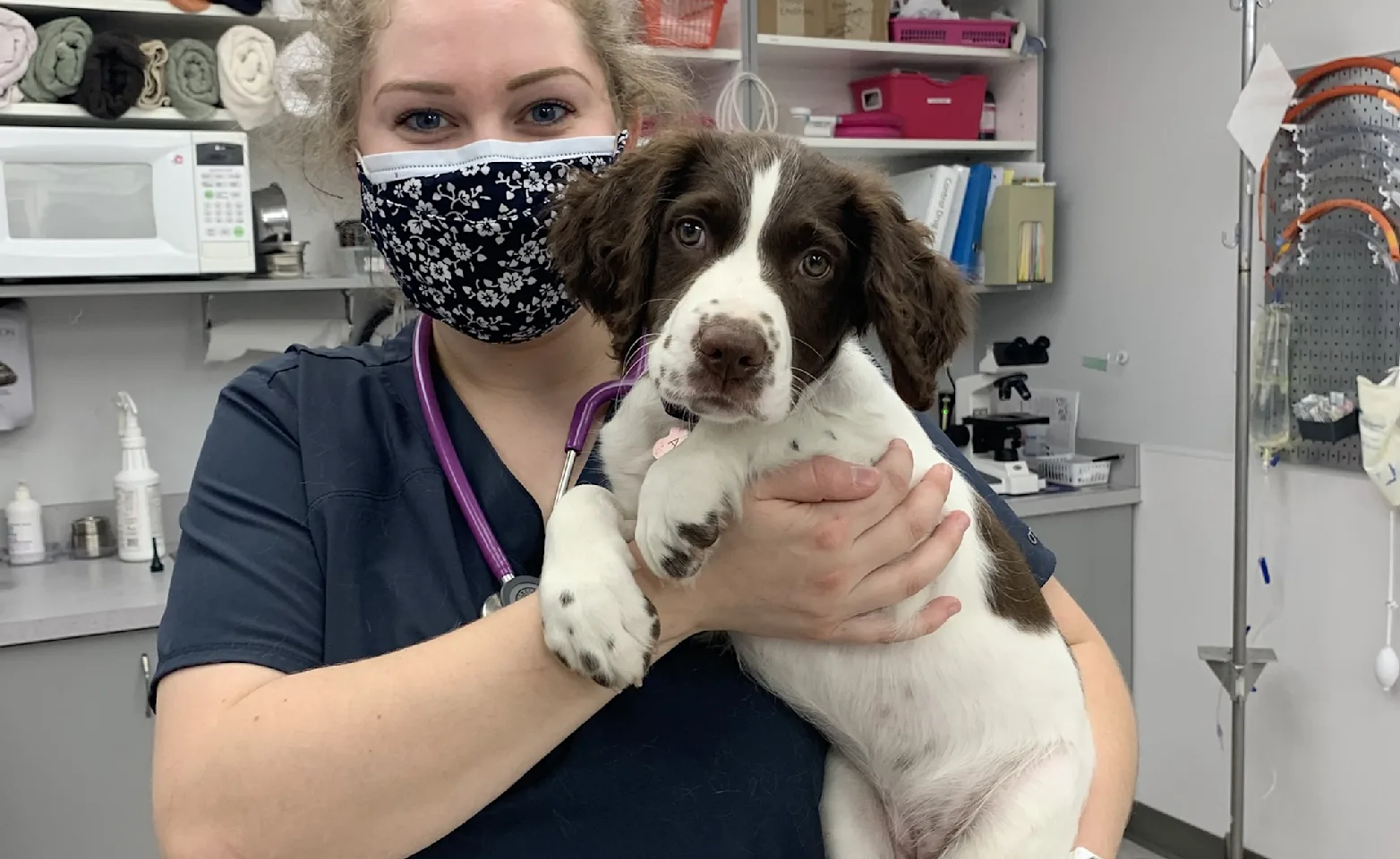Veterinary specialties that go beyond general pet care
Wiki Article
Exactly How a Veterinary Specialty Hospital Can Treat Your Pet's Conditions With Advanced Techniques
Veterinary specialty hospitals play an important function in addressing complex health and wellness concerns in animals. They utilize advanced methods and modern technologies that boost diagnosis and treatment. With access to specialized services, family pet proprietors can locate tailored solutions for their animals' conditions. This increases vital inquiries concerning the specific methods employed and the benefits they offer. Comprehending these aspects can significantly affect a pet dog's recuperation trip.Recognizing the Duty of Veterinary Specialty Hospitals
Primary treatment vets supply vital services for pet health, vet specialty hospitals play a critical duty in resolving complicated medical conditions that call for innovative diagnostics and treatment. These facilities are equipped with specialized modern technology and knowledgeable experts who concentrate on certain areas of veterinary medication, such as cardiology, oncology, and neurology.Veterinary specialty hospitals facilitate a joint technique, frequently operating in combination with an animal's key veterinarian to create detailed care strategies. They supply access to sophisticated imaging techniques, such as MRI and CT scans, which are not usually readily available in common centers. On top of that, these hospitals use critical care unit for seriously unwell family pets, guaranteeing round-the-clock tracking and assistance.
Specialized Services Supplied by Veterinary Experts
Veterinary specialists supply vital services that enhance animal health care, specifically with innovative diagnostic imaging techniques. These devices make it possible for accurate evaluations of complex clinical problems, resulting in a lot more effective targeted treatment strategies. By integrating these specialized services, veterinary hospitals can substantially boost individual outcomes and general well-being.Advanced Diagnostic Imaging
Advanced diagnostic imaging plays a crucial function in modern veterinary medication, making it possible for professionals to obtain in-depth insights into an animal's wellness. Strategies such as X-rays, ultrasound, computed tomography (CT), and magnetic resonance imaging (MRI) allow veterinarians to picture inner frameworks without intrusive procedures - Learn More. These sophisticated imaging modalities help in diagnosing a range of problems, from fractures and growths to organ irregularities. By offering clear photos, they enhance the accuracy of evaluations, which is essential for effective treatment preparation. In addition, specialized vet radiologists interpret these pictures, making sure that refined concerns are not overlooked. Ultimately, advanced diagnostic imaging is critical in supplying extensive care, as it allows for early detection and intervention in an animal's medical problems
Targeted Treatment Plans
Targeted treatment plans are vital for attending to the details wellness demands of pets, ensuring that each animal receives personalized treatment customized to its one-of-a-kind problem. Veterinary professionals create these strategies based upon complete evaluations, consisting of sophisticated diagnostic imaging and laboratory tests. By concentrating on the specific pet dog's medical diagnosis, age, type, and way of life, specialists can prescribe reliable therapies, ranging from medication changes to medical interventions. These plans additionally incorporate follow-up care and monitoring to track the pet's development and make essential adjustments. This method promotes excellent results and boosts the general lifestyle for pets encountering intricate wellness difficulties. Ultimately, targeted treatment plans stand for a dedication to giving the highest criterion of veterinary care.Advanced Diagnostic Techniques for Accurate Diagnoses
As pet dogs encounter significantly complicated health difficulties, the integration of innovative diagnostic strategies has actually become crucial for accomplishing exact diagnoses. Veterinary specialty hospitals utilize modern imaging innovations, such as MRI and CT checks, to imagine inner structures with exceptional clarity. These methods allow veterinarians to recognize abnormalities that might not show up with typical methods.In addition to imaging, advanced research laboratory tests, including hereditary and biomarker evaluations, give crucial insights right into hidden conditions. These tests enable veterinarians to find conditions at earlier stages, helping with timely intervention. Additionally, making use of endoscopy permits for direct visualization of internal organs, helping in the diagnosis of intestinal and breathing concerns.
Cutting-edge Therapy Alternatives for Complicated Conditions
Ingenious treatment choices for complicated conditions in animals have become a crucial focus within veterinary specialty hospitals. Making use of sophisticated analysis tools, these facilities boost their capacity to recognize concerns precisely and tailor appropriate treatments. Veterinary. Furthermore, the application of minimally invasive treatments and advanced rehabilitation strategies uses family pets a much better chance at recuperation with minimized discomfortCutting-edge Diagnostic Devices
While the landscape of veterinary medication proceeds to evolve, sophisticated diagnostic tools have actually arised as important properties for attending to complex problems in pet dogs. These sophisticated technologies, consisting of digital imaging, ultrasound, and molecular diagnostics, permit veterinarians to get exact information concerning an animal's wellness condition promptly. High-resolution imaging strategies can reveal complex information of interior frameworks, enabling precise analyses of injuries or illness. Additionally, genetic screening offers understandings right into hereditary conditions, assisting tailored treatment plans. By leveraging these cutting-edge diagnostic tools, veterinary specialty hospitals can enhance their capability to recognize ailments that may have previously gone unseen. Eventually, these innovations contribute to enhanced end results and improve the overall quality of treatment given to beloved animals.Minimally Invasive Procedures
Improvements in vet medicine have led the way for minimally invasive procedures, which use brand-new therapy options for complex conditions in animals. These ingenious methods, such as laparoscopy and endoscopy, permit veterinarians to perform surgeries with smaller cuts, lowering injury and recuperation time. By making use of specialized electronic cameras and tools, vets can detect and deal with problems like growths, food poisonings, and joint problems with accuracy - Learn More. This approach minimizes pain and leads to quicker healing, allowing family pets to go back to their regular tasks earlier. On top of that, minimally intrusive treatments commonly cause much less scarring and a reduced threat of complications. As veterinary specialty hospitals adopt these advanced methods, animal owners can feel a lot more certain in their pet dogs' treatment and general wellnessAdvanced Rehab Techniques
As veterinary medication advances, progressed rehab methods are ending up being vital for handling intricate problems in family pets. These techniques encompass a range of cutting-edge therapy alternatives, consisting of hydrotherapy, laser treatment, and physical therapy. Hydrotherapy utilizes water resistance to boost flexibility and enhance muscles, helpful for animals recovering from surgical procedure or injury. Laser treatment advertises recovery by minimizing inflammation and discomfort, promoting quicker healing times. Physical treatment employs targeted workouts to improve strength and adaptability, customized to each pet dog's details demands - Veterinary. In addition, techniques like acupuncture and chiropractic changes can even more support rehabilitation by relieving discomfort and improving general well-being. Veterinary specialty hospitals are significantly integrating these techniques, making certain animals obtain complete care that attends to both physical and psychological recuperation, ultimately improving their quality of lifeThe Value of a Multidisciplinary Approach
A multidisciplinary approach in vet care considerably enhances the treatment end results for pets, as it incorporates experience from different specializeds to address complicated wellness concerns. This collaborative approach includes vets, professionals, specialists, and assistance team working with each other to formulate extensive therapy strategies tailored to each animal's unique requirements. By integrating expertise from areas such as surgery, interior medicine, oncology, and recovery, veterinarians can identify underlying conditions that might or else go undetected.This approach fosters communication among group participants, ensuring that all aspects of a pet's health are considered. A pet recuperating from surgical treatment may profit from input from both a doctor and a rehab professional, leading to an extra efficient recovery procedure. Inevitably, a multidisciplinary technique not only improves the quality of treatment however also boosts the general well-being of pet dogs, providing them with the most effective possibility for a successful recuperation and long-lasting health.
Cutting-Edge Modern Technology in Veterinary Medicine

Telemedicine has actually likewise become a crucial resource, making it possible for veterinarians to talk to pet owners remotely, therefore helping with prompt treatments. Furthermore, the assimilation of artificial knowledge in evaluating clinical information adds to a lot more reliable treatment plans tailored to private demands. Cutting-edge lab tools enables rapid blood evaluation and pathogen detection, promoting prompt medical actions. As vet specialty hospitals continue to include these advancements, they not only improve the top quality of treatment yet additionally greatly improve the general wellness of family pets.
Success Stories: Real-Life Instances of Pet Dog Recovery
Many heartfelt success tales highlight the remarkable recoveries of animals treated at vet specialty hospitals. One such situation entailed Bella, a Golden Retriever detected with an extreme orthopedic concern. After innovative medical treatment and rehab, Bella was not only able to walk once more but also to run joyfully in the park, much to her owners' joy.Another motivating tale attributes Max, a pet cat with persistent kidney illness. With specialized nutritional monitoring and cutting-edge therapies, Max's condition supported, allowing him to regain his power and hunger. His owners were satisfied to see him return to his spirited self.
Lastly, Luna, a Dachshund who endured a spine injury, went through advanced therapies, bring about a remarkable recuperation. These tales highlight the know-how and empathy found in vet specialty hospitals, showcasing their capacity to recover wellness and happiness to beloved pets and their family members.
Often Asked Questions
What Should I Anticipate During My Pet dog's Specialty Examination?
During a specialized assessment, pet proprietors can anticipate a detailed assessment, detailed clinical history conversations, diagnostic examinations, and tailored therapy options. The vet professional will give insights and referrals for the animal's details health needs.Just How Can I Discover a Veterinary Specialty Hospital Near Me?
To locate a veterinary specialty hospital nearby, one can make use of online internet search engine, check regional directory sites, or seek suggestions from key veterinarians. Furthermore, pet dog owner online forums can supply valuable insights and experiences regarding neighboring facilities.Are Specialty Solutions Covered by Family Pet Insurance?
Specialty services may be covered by family pet insurance policy, but protection differs by plan. Proprietors should thoroughly examine their insurance policy strategy information and consult their service provider to comprehend the degree of protection for specialty vet solutions.How Much Time Will My Pet's Treatment Take?

The period of a family pet's treatment can vary significantly, usually ranging from a few days to a number of weeks. Aspects affecting this timeline consist of the specific condition, treatment type, and the pet dog's total health and wellness and action.
What Are the Expenses Connected With Specialty Veterinary Treatment?
The expenses related to specialty veterinary treatment can differ widely, generally varying from hundreds to hundreds of dollars. Factors affecting these costs include the intricacy of the problem, needed therapies, and analysis procedures essential for efficient treatment.Veterinary specialty hospitals play a crucial function in dealing with complex wellness issues in pets. Main care vets offer essential solutions for pet health, vet specialty hospitals play a vital duty in attending to complex clinical conditions that need advanced diagnostics and treatment. Veterinary specialty hospitals facilitate a collective approach, typically Bonuses working in conjunction with a pet dog's main vet to create complete care plans. Cutting-edge therapy alternatives for complicated problems in pets have arised as an important emphasis within veterinary specialty hospitals. A multidisciplinary technique in vet care considerably boosts the treatment results for pet dogs, as it integrates experience from various specialties to attend to intricate health issues.
Report this wiki page